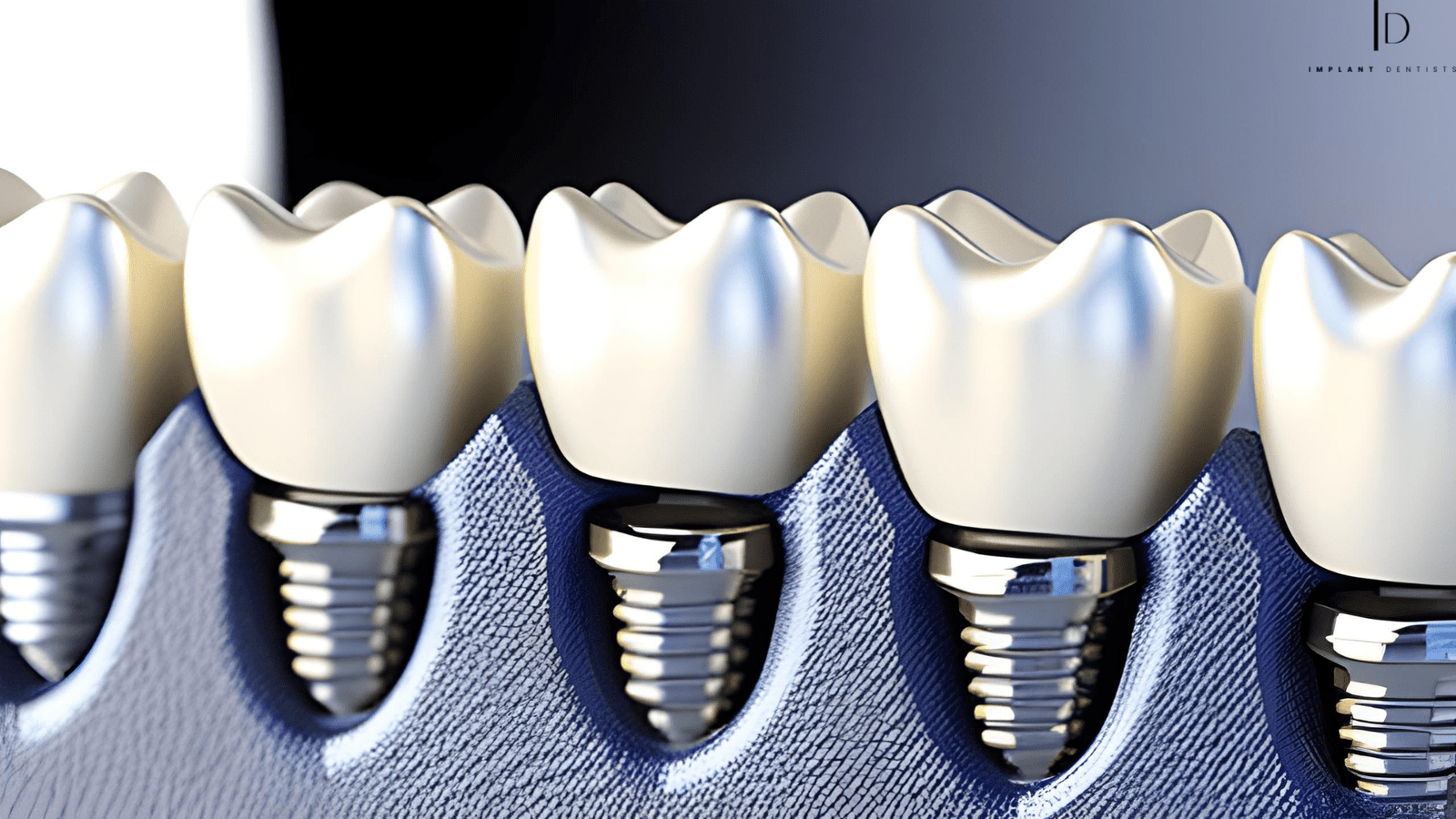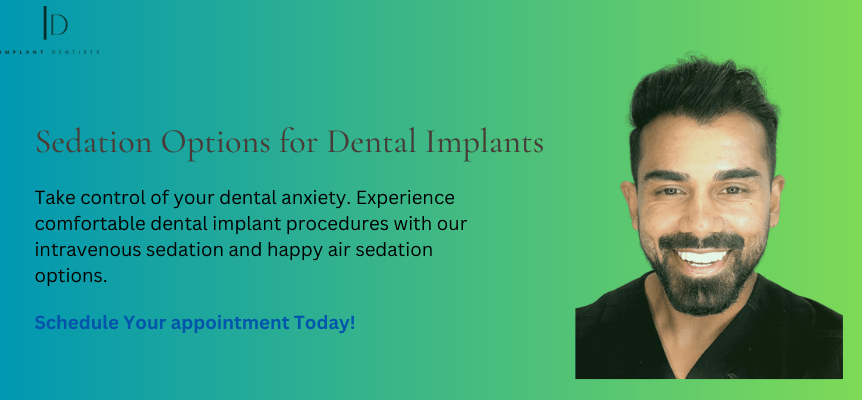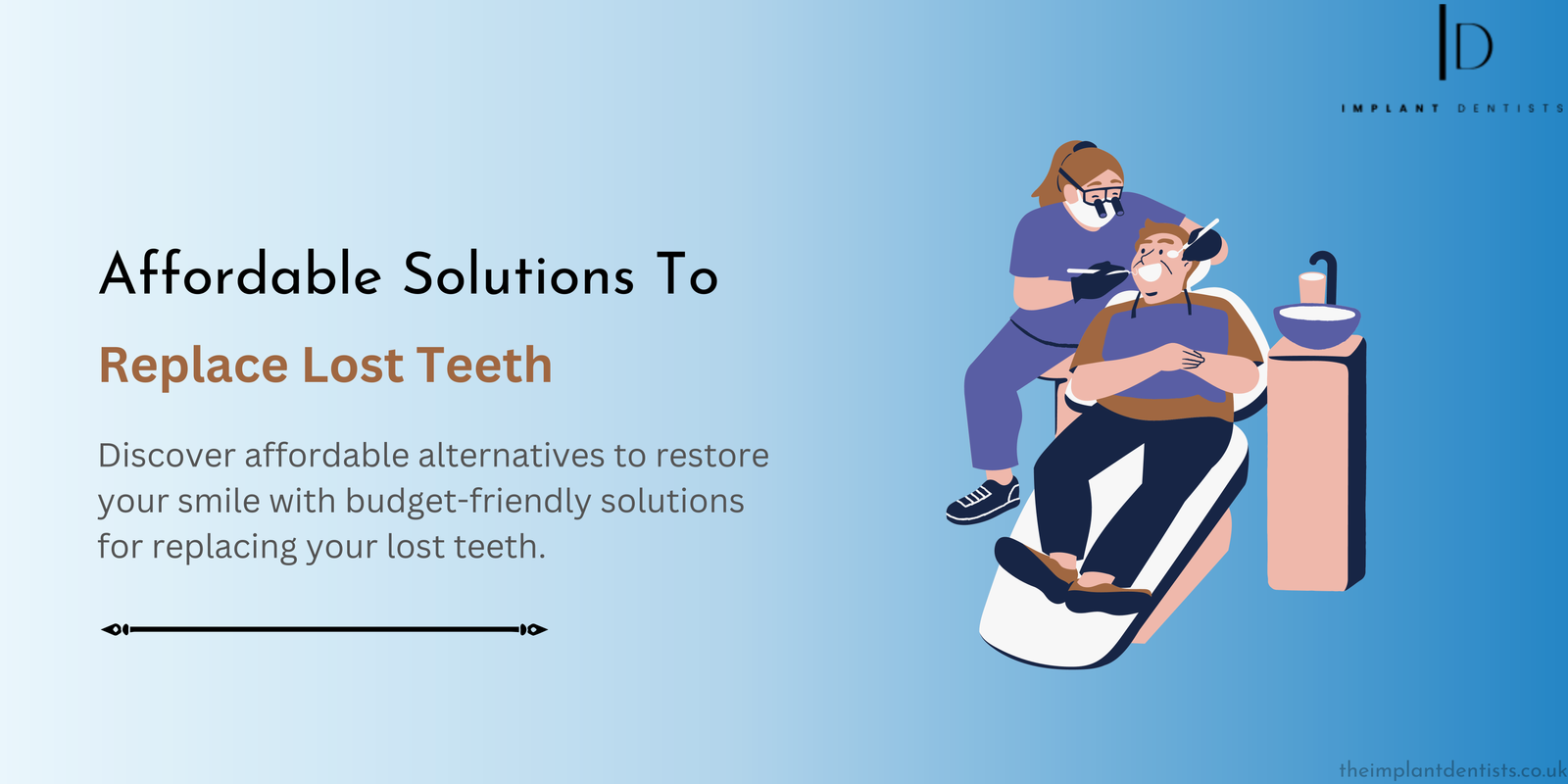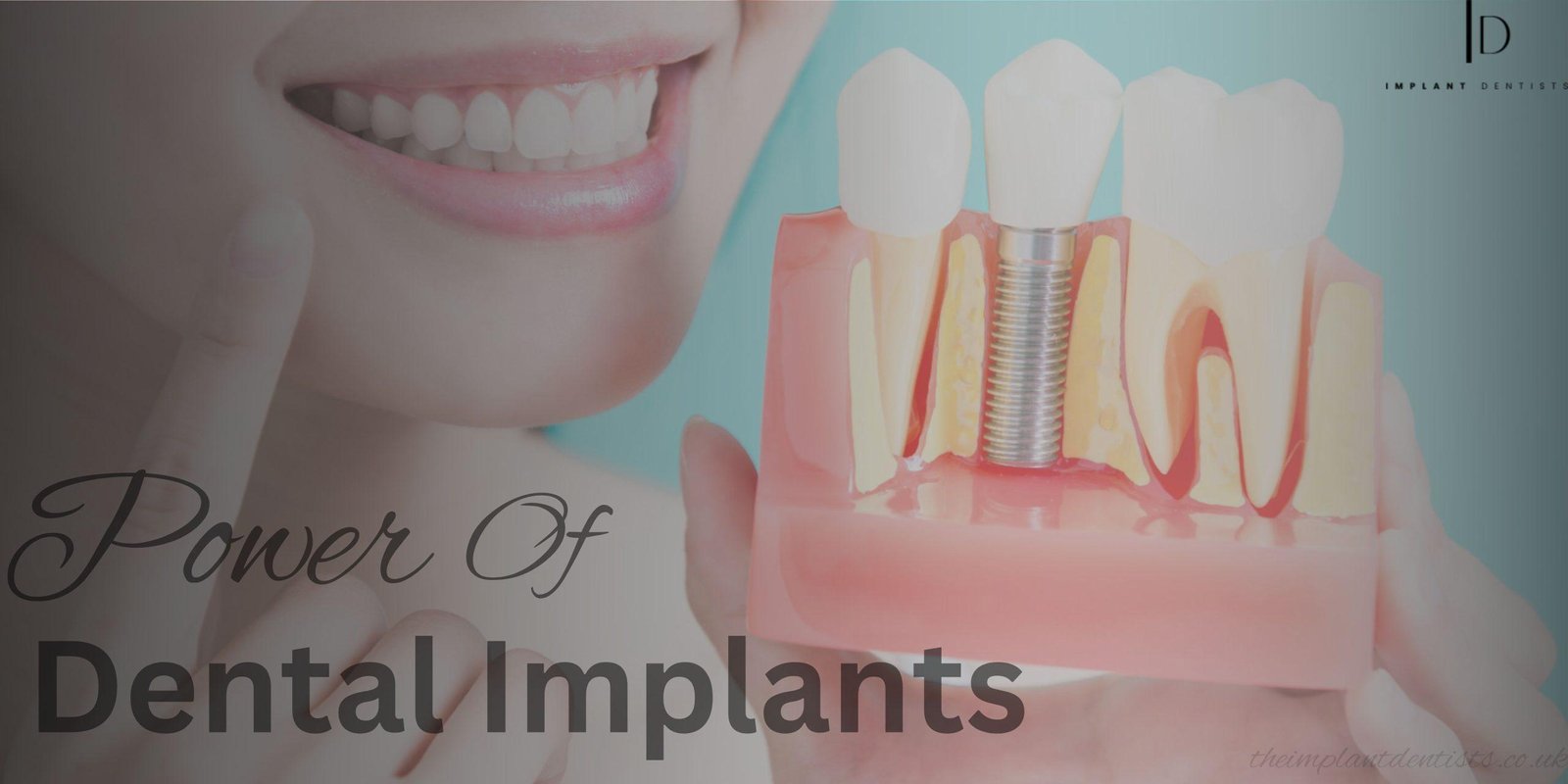Month: June 2023

The Science Behind Dental Implants: Unveiling the Technology and Techniques
June 27, 2023Dental implants have transformed dentistry by offering a durable and practical replacement for lost teeth. This article aims to delve into the science behind dental implants, shedding light on the technology and techniques involved. By understanding the intricate processes and advancements in this field, patients can make informed decisions about their dental health and regain their smiles with confidence.
Understanding Dental Implants:
Artificial tooth roots called dental implants are inserted into the jawbone surgically. Composed of biocompatible materials, typically titanium, they fuse with the bone to provide a stable foundation for replacement teeth. This process is called osseointegration and is a critical factor in the success of dental implant procedures.
Implant Design and Materials:
Implants are meticulously designed to mimic the natural tooth structure. They consist of three main parts: the implant fixture, abutment, and prosthetic crown. The implant fixture serves as the artificial root, while the abutment acts as a connector between the fixture and crown. Different materials, such as titanium and ceramic, use for dental implants, each offer unique advantages.
Osseointegration – The Key to Success:
The success of dental implants lies in the process of osseointegration. Once the implant is placed, it integrates with the surrounding bone over time. The implant’s surface texture and structure play a crucial role in promoting osseointegration by enhancing bone cell attachment and growth. Recent advancements in implant surface technologies, such as nanostructures and coatings, have significantly improved osseointegration rates.
Computer-Aided Implant Placement:
Technological advancements have revolutionised dental implant procedures. Computer-aided implant placement techniques utilise advanced imaging technologies, such as cone-beam computed tomography (CBCT), to create detailed 3D models of the patient’s jaw. This enables dentists to plan the optimal placement of implants with precision, minimising risks and ensuring optimal functional and aesthetic outcomes.
Guided Implant Surgery:
Guided implant surgery combines computer-aided design and manufacturing (CAD/CAM) technologies with real-time surgical guidance. Using the 3D models, a surgical guide is created, which aids in accurate implant placement. This approach improves the efficiency and predictability of the surgery, reduces patient discomfort, and enhances overall treatment outcomes.
Immediate Implant Placement and Loading:
Dental professionals can place dental implants immediately after tooth extraction in certain cases. This approach, known as immediate implant placement, reduces treatment time and preserves the surrounding bone and soft tissue. With advancements in implant design and techniques, immediate loading of a temporary or permanent prosthesis onto the implant is also possible, providing patients with immediate aesthetic and functional benefits.
Advancements in Implant Materials and Surface Modifications:
Ongoing research and development have led to the emergence of new implant materials and surface modifications. Materials such as zirconia, a strong ceramic, offer excellent aesthetics and biocompatibility. Surface modifications, including nanotopography and bioactive coatings, aim to enhance osseointegration and promote faster healing.
Conclusion:
Dental implants have transformed the way we approach tooth replacement, combining scientific principles with technological advancements. The science behind single or full jaw dental implants, including osseointegration, implant design, computer-aided techniques, and material innovations, continues to evolve, offering patients improved treatment outcomes and long-term success. By understanding these advancements, individuals can make informed decisions about dental implant procedures, ultimately restoring their smiles and improving their quality of life.

Conquering Dental Anxiety: Sedation Options for Dental Implants
June 21, 2023Dental anxiety is a common condition. It affects a significant number of adults, often preventing them from seeking essential dental care. The fear and unease associated with dental visits can be particularly pronounced when it comes to more complex procedures like dental implant placement. However, advancements in sedation dentistry have revolutionised the field. The field offers effective solutions to alleviate anxiety and provide a comfortable experience for nervous patients. In this blog post, we will delve into the topic of dental anxiety. We will discuss the benefits of intravenous sedation and happy air sedation. Additionally, we will highlight how these techniques can make dental implant procedures more accessible to individuals with dental phobia.
Understanding Dental Anxiety:
People experience dental anxiety as an emotional response characterized by apprehension, fear, or stress related to dental treatment. Various factors, including previous negative experiences, fear of pain, and a sense of loss of control, can trigger dental anxiety. For individuals with dental anxiety, even routine dental visits can induce significant distress. However, it is crucial to address these concerns, as avoiding necessary dental care can lead to serious oral health complications.
The Role of Sedation Dentistry:
Sedation dentistry offers a viable solution for individuals suffering from dental anxiety. By using various sedation techniques, dental professionals can help patients relax and remain comfortable during their dental procedures. Two commonly used methods for managing dental anxiety during dental implant procedures are intravenous (IV) sedation and happy air sedation.
Intravenous Sedation:
Intravenous sedation involves the administration of sedative medication directly into the bloodstream, inducing a deep state of relaxation and reducing anxiety. This type of sedation is administered by a trained professional, usually a dentist or an anesthesiologist. IV sedation provides a high level of control over the sedation depth and allows the dental team to closely monitor the patient’s vital signs throughout the procedure. It is particularly useful for patients with severe dental phobia or those undergoing complex dental implant surgeries.
Happy Air Sedation:
Happy air sedation, also known as nitrous oxide or laughing gas sedation, is another popular technique used to alleviate anxiety during dental procedures. It involves inhaling a carefully calibrated mixture of nitrous oxide and oxygen, creating a state of relaxation and euphoria. Happy air sedation induces a mild sedative effect, allowing patients to remain conscious and responsive during the procedure. It is a safe and effective option for patients with mild to moderate dental anxiety and can be used for both simple and complex dental implant procedures.
Benefits of Sedation during Dental Implant Procedures:
- Anxiety and Fear Reduction: By utilising sedation techniques, dental professionals can help patients overcome their dental anxiety, creating a more comfortable and positive experience during dental implant surgeries.
- Increased Cooperation and Efficiency: Sedation allows patients to remain relaxed and cooperative, enabling the dental team to perform complex dental implant procedures with greater precision and efficiency.
- Pain Management: In dental implant surgeries, we can combine sedation techniques, such as IV sedation, with local anesthesia to ensure that patients experience minimal discomfort.
- Time Perception Alteration: Sedation can alter the perception of time, making lengthy procedures feel shorter and more manageable for patients.
- Memory Suppression: Sedation can induce a temporary state of amnesia. This helps patients forget the details of the procedure and reduces their fear of future dental visits.
Conclusion:
Dental anxiety should never be a barrier to receiving essential dental care, especially when it comes to best dental implants procedures. The availability of sedation dentistry techniques offers a ray of hope for individuals with dental phobia. These techniques include intravenous sedation and happy air sedation. These sedation methods can help create a more relaxed and comfortable environment. They allow nervous adults to undergo dental implant surgeries without undue stress or fear.
By partnering with a dental practice that offers intravenous sedation and happy air sedation, individuals with dental anxiety can take the necessary steps towards restoring their oral health and achieving a beautiful smile. It’s important to consult with a qualified dentist. The consultation will help determine the most suitable sedation option. The determination will be based on your specific needs and level of dental anxiety. The dental professionals will evaluate your medical history, discuss your concerns. tailor a sedation plan that ensures your safety and comfort throughout the procedure.

Budget-Friendly Solutions for Replacing Your Lost Teeth
June 16, 2023Losing a tooth can be a distressing experience that affects not only your oral health but also your self-confidence. Fortunately, there are budget-friendly solutions available to replace lost teeth and restore your smile. In this article, we will explore various options for tooth replacement that won’t break the bank. Whether you have lost a single tooth or multiple teeth, there are effective and affordable treatments to suit your needs.
Understanding Tooth Loss
Tooth loss can occur due to various reasons, including tooth decay, gum disease, injury, or ageing. Regardless of the cause, it is essential to address tooth loss promptly to prevent further complications. Missing teeth can lead to difficulties in chewing, speech problems, shifting of adjacent teeth, and a negative impact on your overall oral health.
Consequences of Tooth Loss
When a tooth is lost, the surrounding teeth may shift into the empty space, causing misalignment and bite issues. Additionally, the jawbone in the area of the missing tooth may begin to deteriorate due to lack of stimulation. This can result in further tooth loss and a change in facial structure over time. Therefore, it is crucial to consider tooth replacement options to maintain the health and aesthetics of your smile.
Dental Implants: A Long-lasting Solution
Dental implants are widely regarded as the gold standard for tooth replacement. They are durable, long-lasting, and provide excellent aesthetics and functionality. A dental implant consists of a titanium post that is surgically placed into the jawbone, acting as an artificial tooth root. Once the implant integrates with the bone, a dental crown is attached to the post, creating a natural-looking and fully functional tooth.
While dental implants may have a higher initial cost compared to other options, they offer exceptional longevity, often lasting a lifetime with proper care. This makes them a cost-effective solution in the long run. Furthermore, dental implants help preserve the integrity of the jawbone by stimulating bone growth through a process called osseointegration.
Dental Bridges: Bridging the Gap
A dental bridge is a non-removable prosthesis that fills the gap created by one or more missing teeth. It consists of dental crowns on the adjacent teeth to anchor the artificial tooth in place. Dental bridges can be an effective solution for replacing a single tooth or multiple adjacent teeth.
Dental bridges offer advantages such as restoring proper chewing function, improving speech, and enhancing the appearance of your smile. They are a more affordable alternative to dental implants, providing a fixed and durable tooth replacement option.
Dentures: A Removable Option
Dentures have been a popular choice for tooth replacement for many years. They are removable prosthetic devices that replace missing teeth and surrounding tissues. Dentures can be complete, replacing all the teeth in an arch, or partial, filling the gaps left by a few missing teeth.
While dentures may not offer the same level of stability as dental implants or bridges, they are a more affordable option for those on a budget. Modern dentures are designed to fit comfortably and provide a natural-looking smile. With proper care and regular adjustments, dentures can be a viable solution for replacing lost teeth.
Dental Veneers: Enhancing Your Smile
Dental veneers are thin, custom-made shells made of porcelain or composite resin that are bonded to the front surface of teeth. While primarily used for cosmetic purposes, veneers can also be utilised to restore the appearance of a single missing tooth or to close small gaps between teeth.
Veneers offer a conservative and cost-effective solution for improving the aesthetics of your smile. They are durable and resistant to staining, providing a long-lasting solution for enhancing the appearance of your teeth.
Partial Dentures: Affordable and Effective
Partial dentures are removable dental appliances used to replace one or more missing teeth when some natural teeth remain. They consist of artificial teeth attached to a metal or acrylic framework that blends with the natural teeth and gums. Partial dentures are an affordable and effective option for restoring your smile.
By filling the gaps left by missing teeth, partial dentures help maintain proper alignment, prevent adjacent teeth from shifting, and improve your ability to chew and speak. With advancements in dentistry, partial dentures now offer better aesthetics, comfort, and functionality.
Conclusion
Replacing lost teeth is essential not only for restoring your smile but also for maintaining proper oral health and functionality. Fortunately, there are budget-friendly solutions available to meet your specific needs. Whether you opt for cheap dental implants, dental bridges, dentures, dental veneers, or partial dentures, consult with your dentist to determine the most suitable option for you.
Remember to prioritise the long-term benefits and consider the durability, aesthetics, and functionality of each treatment. By exploring these budget-friendly solutions, you can regain your confidence and enjoy a beautiful, healthy smile once again. Don’t let tooth loss hold you back; take action and explore the options that can help you replace your lost teeth affordably and effectively.

Enhance Your Smiles Through The Power of Dental Implants
June 5, 2023When it comes to enhancing smiles and restoring confidence, dental implants have revolutionised the field of dentistry. A durable and aesthetically pleasing option for replacing missing teeth is dental implants. They not only make your smile look better, but they also enhance the function and general health of your mouth. In this article, we will explore the power of dental implants and how they can transform your smile.
Benefits of Dental Implants
Dental implants offer numerous benefits that make them a popular choice for tooth replacement. Here are some key advantages:
- Improved Appearance: Dental implants look and feel like natural teeth, enhancing your smile and facial aesthetics.
- Enhanced Function: Implants function like real teeth, allowing you to eat, speak, and chew with confidence.
- Durability: With proper care, dental implants can last a lifetime, making them a cost-effective solution in the long run.
- Preservation of Jawbone: Implants stimulate the jawbone, preventing bone loss and maintaining the facial structure.
- No Damage to Surrounding Teeth: Unlike dental bridges, implants don’t rely on adjacent teeth for support, preserving their natural integrity.
- Convenience: Dental implants eliminate the need for messy adhesives or removal of dentures for cleaning, providing convenience and ease of maintenance.
The Dental Implant Process
The dental implant process typically involves several steps, which may vary depending on your specific case. Here is an overview of the process:
- Initial Consultation: During the first visit, your dentist will evaluate your oral health, review your medical history, and discuss your treatment goals. They will determine if you are a suitable candidate for dental implants.
- Treatment Planning: A comprehensive treatment plan will be developed based on your needs. This includes the number of implants required, the type of restoration, and any necessary preparatory procedures.
- Implant Placement: In the next stage, the implants will be surgically placed into the jawbone. This procedure is performed under local anaesthesia, ensuring your comfort throughout the process. The implants will then be left to heal and integrate with the bone over a period of several months.
- Abutment Placement: Once the implants have fully integrated, abutments, which are connectors between the implants and the replacement teeth, are placed. This minor surgical procedure requires a brief healing period.
- Restoration: Finally, custom-made dental crowns, bridges, or dentures are attached to the abutments, completing the implant restoration. Your dentist will ensure the restoration matches the colour, shape, and size of your natural teeth for a seamless and natural-looking smile.
Who Can Benefit from Dental Implants?
Dental implants are an excellent solution for individuals who have one or more missing teeth. However, not everyone may be a suitable candidate for the procedure. Ideal candidates for dental implants generally have:
- Good oral health and hygiene habits
- Sufficient jawbone density and volume
- Healthy gum tissues
- No uncontrolled systemic diseases that may interfere with healing
- A commitment to maintaining oral hygiene and regular dental visits
Your dentist will thoroughly evaluate your oral health and determine if dental implants are the right option for you.
Dental Implants vs. Other Tooth Replacement Options
While there are several tooth replacement options available, dental implants offer unique advantages over alternatives such as dentures or dental bridges. Here’s how dental implants compare:
Dental Implants vs. Dentures:
- Stability: Dental implants are securely anchored in the jawbone, eliminating the risk of dentures slipping or shifting.
- Bone Preservation: Implants stimulate the jawbone, preventing bone loss, which can occur with traditional dentures.
- Improved Chewing Efficiency: Implants function like natural teeth, allowing you to enjoy a wider range of foods without restrictions.
- Enhanced Speech: With implants, you can speak with confidence, as they don’t interfere with speech like some dentures can.
- Longevity: Dentures may need to be replaced or adjusted periodically, while implants can last a lifetime with proper care.
Dental Implants vs. Dental Bridges:
- Preservation of Adjacent Teeth: Dental implants do not rely on neighbouring teeth for support, preserving their natural structure.
- Improved Oral Hygiene: Dental implants can be brushed and flossed like natural teeth, making oral hygiene maintenance easier.
- Aesthetics: Implants provide a natural-looking and seamless smile, as they are individually placed to match the appearance of surrounding teeth.
- Durability: Fixed bridge dentals may require replacement after several years, while implants offer a more long-lasting solution.
Taking Care of Dental Implants
Proper care and maintenance are essential to ensure the longevity and success of dental implants. Here are some tips to keep your implants in optimal condition:
- Oral Hygiene: Brush your teeth at least twice a day and floss daily to remove plaque and food debris.
- Regular Dental Visits: Visit your dentist for routine check-ups and professional cleanings to monitor the health of your implants and surrounding tissues.
- Avoid Smoking: Smoking can hinder the healing process and increase the risk of implant failure.
- Protect Your Implants: Avoid biting or chewing on hard objects, as it can damage your implants and restorations.
- Maintain a Healthy Lifestyle: Adopt a well-balanced diet and practise good overall oral health habits to support the longevity of your implants.
Conclusion
Dental implants offer a transformative solution for enhancing smiles and restoring confidence. With their natural appearance, durability, and functionality, dental implants have become the gold standard in tooth replacement. By choosing dental implants, you can enjoy a beautiful, healthy smile that lasts a lifetime. If you’re considering dental implants, consult with a qualified dentist who can assess your individual needs and guide you through the process to achieve the smile you’ve always desired.
